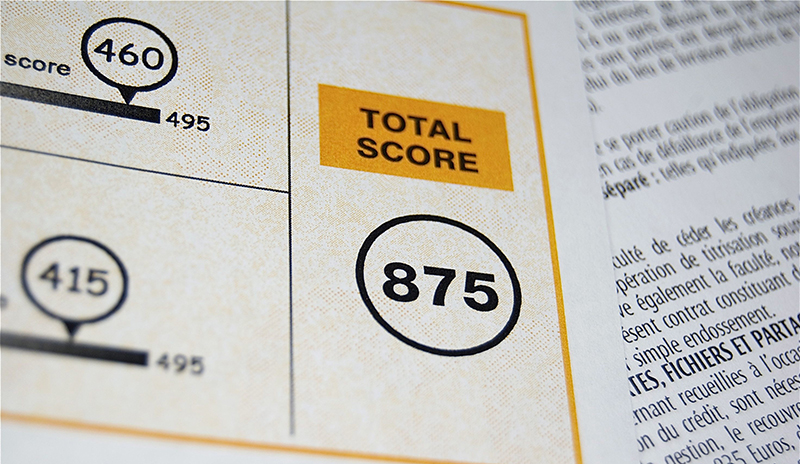Embarking on the journey of TOEFL iBT signifies a commitment to excellence in English language proficiency. Your scores go beyond a mere numeric representation; they open doors to academic institutions and professional opportunities globally.

Understanding the TOEFL iBT Format
Four Sections: Reading, Listening, Speaking, and Writing
The TOEFL iBT consists of four distinct sections, each evaluating specific language skills. Understanding the nuances of each section is fundamental to deciphering your overall performance.
Scoring Scale: 0 to 120 Points
The scoring scale ranges from 0 to 120 points, with each section contributing to the total score. It’s not just a number; it’s a reflection of your ability to read, listen, speak, and write in English proficiently.
Importance of Each Section
Your TOEFL iBT score isn’t just a composite number; it breaks down into individual section scores. Let’s delve into why each section is crucial in assessing your language proficiency.
Reading and Listening Skills
Mastering the art of active reading and honing listening comprehension are pivotal in securing high scores in these sections.
Articulation in Speaking
TOEFL speaking tasks require not just fluency but also clarity and coherence. Discover effective strategies for excelling in the speaking section.
Written Expression in Writing
Writing prompts demand well-structured responses. Learn to organize your thoughts and convey ideas coherently to boost your writing scores.
Scoring Criteria Breakdown
Unravel the mystery behind TOEFL iBT scoring criteria. From reading and listening to speaking and writing, each section has specific elements contributing to your score.
Reading and Listening Section Scores
What goes into determining your reading and listening section scores? Let’s break down the evaluation process.
Speaking Section Evaluation
Understand how your articulation, pronunciation, and overall performance are assessed in the speaking section.
Writing Section Assessment
From grammar to organization, explore the factors that impact your writing section scores.
Strategies for Improving Reading and Listening Scores
Active Reading Techniques
Discover techniques to actively engage with reading materials, enhancing your comprehension and retention.
Enhancing Listening Comprehension Skills
Boost your listening skills with practical tips to decipher spoken English effectively.
Mastering Articulation in TOEFL Speaking
Overview of TOEFL Speaking Tasks
Get acquainted with the types of speaking tasks and understand the expectations for each.
Effective Strategies for Each Task
From task 1 to task 6, explore strategies that elevate your speaking performance across the board.
Crafting Well-Structured Writing Responses
Understanding Writing Prompts
Decipher the intricacies of writing prompts and learn how to approach them systematically.
Organizing Thoughts and Ideas
Structure your written responses for maximum impact, ensuring clarity and coherence.
TOEFL iBT Score Validity
Two-Year Validity Period
Your TOEFL iBT scores are valid for two years. Plan strategically for submitting scores within this timeframe.
Planning for Score Submission
Whether for academic admissions or professional certifications, strategic planning ensures your scores are utilized effectively.
Overcoming Common Challenges
Navigating Time Constraints
Time is a precious commodity in TOEFL iBT. Discover time-management strategies to tackle each section effectively.
Dealing with Test Anxiety
Overcome anxiety with practical tips to stay focused and perform at your best on test day.
Interpreting TOEFL iBT Score Reports
Understanding Sectional Scores
Grasp the significance of individual section scores and how they contribute to your overall performance.
Identifying Strengths and Weaknesses
Use your score report as a tool for improvement by identifying areas of strength and those needing attention.
Real-Life Implications of TOEFL iBT Scores
Academic Institution Requirements
Many academic institutions set specific score requirements. Understand how your scores align with these criteria.
Professional Certification and Employment Opportunities
TOEFL iBT scores are often considered in professional settings. Explore how your scores can impact certifications and job opportunities.
Tips for a Successful TOEFL iBT Experience
Adequate Preparation
Preparation is key. From study plans to practice tests, ensure you are thoroughly prepared for the challenges ahead.
Simulated Practice Tests
Simulate the test environment with practice tests to familiarize yourself with the format and build confidence.
Conclusion
In conclusion, decoding TOEFL iBT scores is not just about numbers; it’s about understanding your strengths, addressing weaknesses, and embracing continuous improvement. Your journey to global opportunities starts with mastering the art of effective English communication.
FAQs (Frequently Asked Questions)
- How often can I take the TOEFL iBT?
- You can take the TOEFL iBT as many times as it is offered, with a waiting period of 12 days between each attempt.
- Do universities have a minimum TOEFL iBT score requirement?
- Yes, many universities set a minimum TOEFL iBT score requirement for admission. Check the specific requirements of your
Leave a Reply